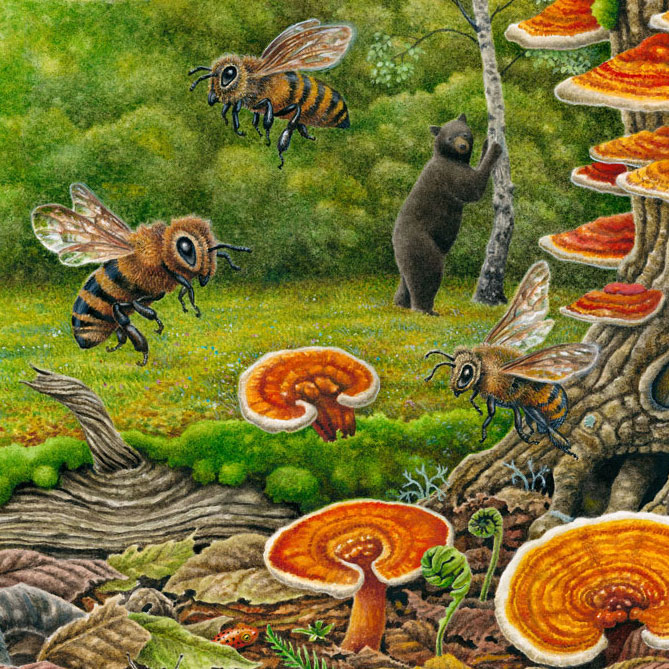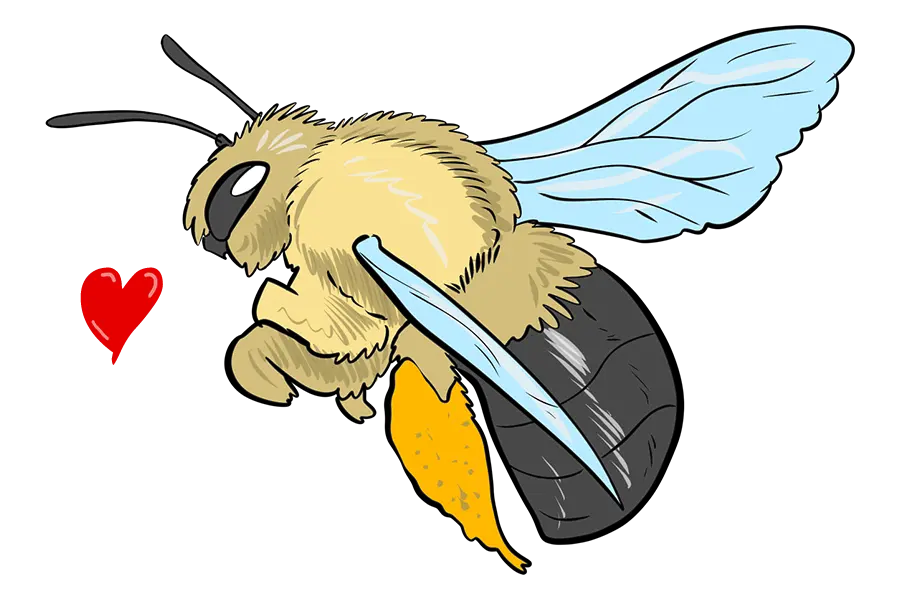 Fungi Perfecti is currently working with expert entomologists to compare the effects of various fungal extracts on bees to see which are most beneficial. They have had positive preliminary results, and are currently working to solidify feeding protocols. The idea will be to help beekeepers' honey bees, and also develop a wild bee feeder that anyone can put in their own garden, so bees may sip beneficial mycelium to boost bees' immunities.
Fungi Perfecti is currently working with expert entomologists to compare the effects of various fungal extracts on bees to see which are most beneficial. They have had positive preliminary results, and are currently working to solidify feeding protocols. The idea will be to help beekeepers' honey bees, and also develop a wild bee feeder that anyone can put in their own garden, so bees may sip beneficial mycelium to boost bees' immunities.
Recent research
Collaborative research between Host Defense's team and Washington State University has been published in Nature's Scientific Reports. Mycelium extracts of polypore mushrooms (Reishi and Amadou) have been shown to confer an immune benefit to bees. This research provides an actionable solution against the stressors threatening bee populations and, in turn, food biosecurity around the world.If you'd like to promote decomposition in your yard or garden in the meantime, here are a few ways you can cultivate bee-friendly fungi using plugs and patches available from Fungi Perfecti:
On logs or stumps
You can cultivate Reishi on log or stumps using their Plug Spawn. You can also start with their Indoor Reishi Mushroom Patch, then expand the mycelium onto logs once it is done producing indoors.
In a terrestrial bed
Also, growing Stropharia rugoso-annulata—aka the Garden Giant or Wine Cap—might be of interest. It's the species that Paul Stamets (who founded Fungi Perfecti) first observed attracting bee activity, as the bees were seen sipping on the mycelium in a garden bed. You can cultivate this mushroom species in one of two ways: by starting with the Indoor Mushroom Patch first, or by going directly outside with the Outdoor Mushroom Patch.
Both species can be found online at fungi.com, and they come with a complete instruction booklet for growing. Fungi Perfecti's customer support team is also available by phone (800-780-9126) or email to answer any questions you may have while cultivating your own mushrooms for bees.
A huge part of this puzzle is also fungal decomposition of wood, so the folks at Fungi Perfecti have been celebrating decomposition more than ever! They also suggest (as I do!) planting pollinator-friendly vegetation, especially local native species that provide good sources of nectar and pollen, to help support bees as well. Choose several colors of flowers: bees are especially attracted to blue, violet, white and yellow. Pick plants, trees and shrubs that flower throughout the seasons to support bees at different times of the year.
Fungi Perfecti Save the Bees newsletter
Posted February 14th, 2019 • Updated • By Elise Fog

